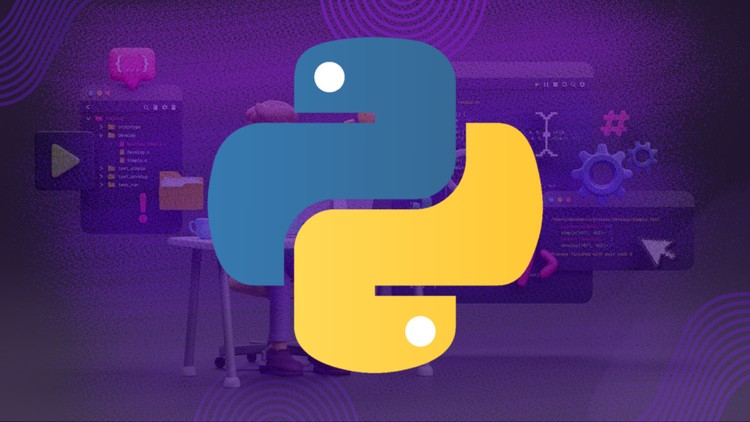
Develop a solid foundation in coding with Python programming and gain the skills to build robust applications.
What you will learn
My First Python Programing
Printing in Python
Strings in Python
Variables and Types
Numeric Data Types in Python
Basic Data Types
Comments and Math Operators
Array and Strings
Functions
if else statements
nested if and else statements
While loops
For loops
indexes and list slicing
Lists vs. Strings
Access and Join Tuples
Tuple and Set Method
Access and Join Sets
Add-On Information:
Note➛ Make sure your 𝐔𝐝𝐞𝐦𝐲 cart has only this course you're going to enroll it now, Remove all other courses from the 𝐔𝐝𝐞𝐦𝐲 cart before Enrolling!
- Embark on your programming journey with Python, the globally recognized language celebrated for its readability and extensive applications. This course is expertly structured for individuals with no prior coding experience, offering a meticulously guided path to foundational programming principles.
- Gain immediate hands-on experience, setting up your essential development tools and executing your very first scripts. Move swiftly from theory to practical application, witnessing tangible results of your coding efforts.
- Grasp the core mechanics of how programs operate, effectively managing and categorizing different data types—from simple numerical values and text to complex collections. This mastery is crucial for handling diverse real-world data scenarios.
- Cultivate vital problem-solving abilities and a logical mindset. Discover how to construct robust algorithms and implement conditional logic to guide program behavior through various decision points and control its sequential flow.
- Explore the foundational principles of code organization and reusability. Learn techniques to structure your programs efficiently by breaking them into manageable, self-contained units, enhancing maintainability, simplifying debugging, and supporting scalability.
- Acquire skills to systematically handle and iterate through structured data sets. Understand how to efficiently access, modify, and integrate various data sequences, preparing you for tasks ranging from processing user inputs to manipulating complex data.
- Develop an intuitive understanding of different data storage paradigms and discerning when to apply each for optimal performance and clarity. This critical knowledge empowers you to make informed design choices for efficient and elegant code.
- Build a clear mental model of program execution, enabling you to trace flow, predict outcomes, and independently diagnose and resolve issues. This fundamental insight is paramount for evolving into a self-sufficient and effective programmer.
- Internalize best practices for writing clean, commented, and highly readable Python code. Emphasizing clarity ensures your programs are not only functional but also easily understood by collaborators and your future self.
- Establish a robust platform for future specialization in areas like web development, artificial intelligence, data science, or automation. This comprehensive foundation equips you to pursue advanced Python concepts and diverse technological fields.
- PROS:
- Unmatched Versatility: Python’s broad applicability across web development, AI, data science, and automation opens numerous career doors, making your skills highly valuable.
- High Demand in Industry: Python proficiency is consistently among the most sought-after skills by employers globally, ensuring excellent job prospects and career growth.
- Beginner-Friendly Syntax: Its clear, English-like syntax drastically lowers the barrier to entry, allowing new programmers to focus on logic rather than complex grammar.
- Vast Community and Resources: Benefit from extensive online documentation, active forums, and a wealth of open-source libraries to support your learning and development beyond the course.
- Foundation for Future Growth: Provides a strong conceptual understanding that easily transfers to other programming languages and advanced computing concepts, setting you up for continuous learning.
- CONS:
- Dependency on Interpreters: While convenient for rapid development, Python’s reliance on an interpreter can sometimes abstract away lower-level system details that might be important for a deep computer science understanding in some specialized fields.
English
language